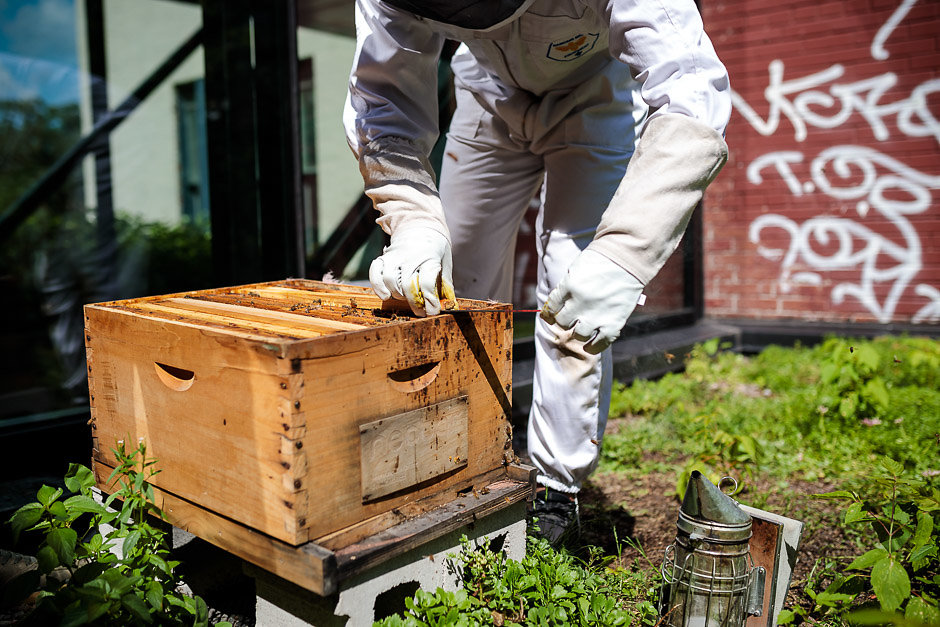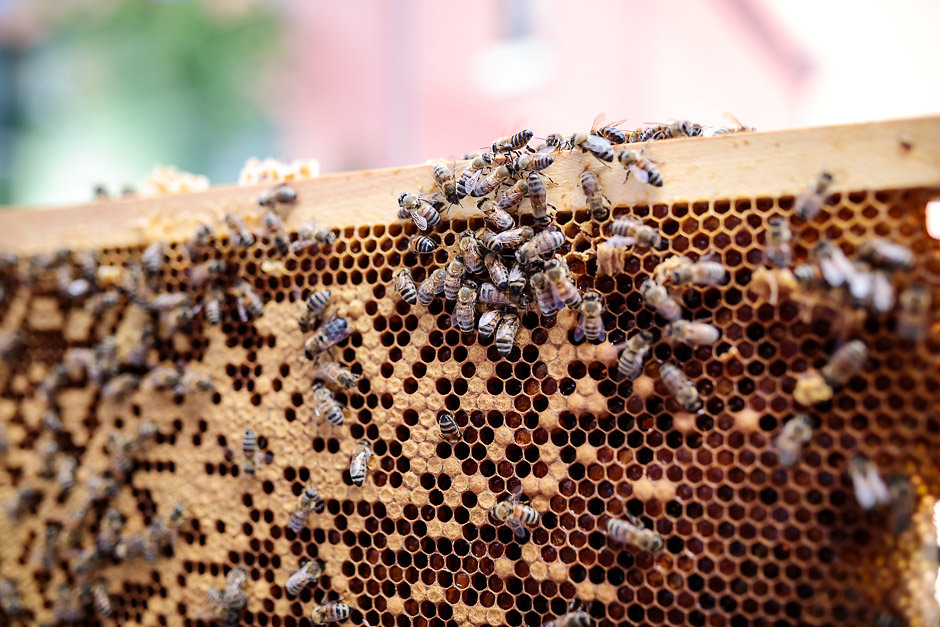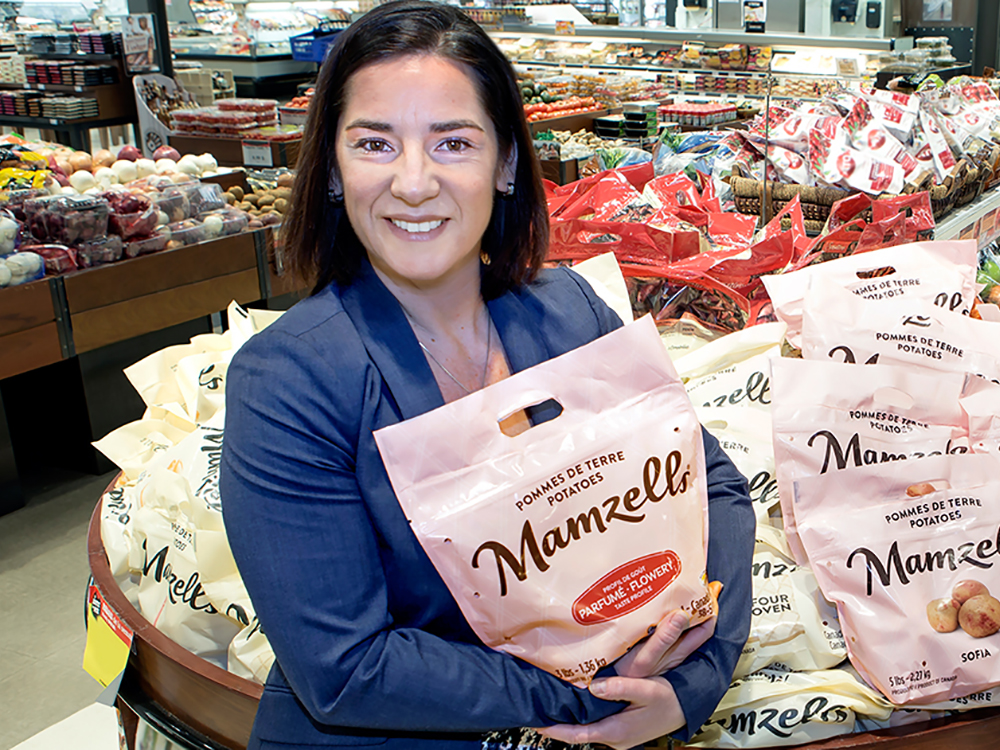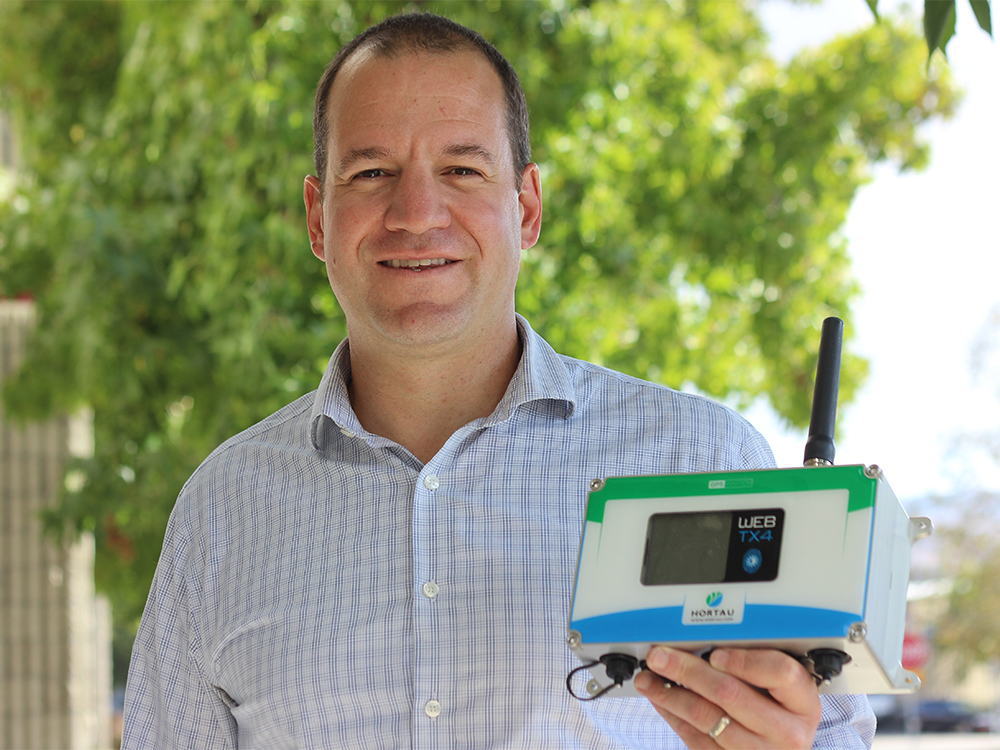
Nectar: 21st century beekeeping
Marc-André Roberge’s Story
Marc-André Roberge has always been fascinated with beekeeping, which is not surprising in and of itself—humans have been practising apiculture for millennia. The wellness treatments produced by modern beekeepers are in fact around 200 years old. But having volunteered at Santropol Roulant’s Beekeeping Collective during his studies in industrial design at Université de Montréal (which he completed in 2014), Roberge can attest to the fact that the craft is far from easy to practise. “Every year, 40 percent of hives in North America die. This is a concern for both amateurs and industry professionals,” he states.
What’s more, it’s an international problem. Since the early 2000s, a notable, consistent increase in the death rate of bees has been observed around the world. The cause seems to be complicated. “Neonicotinoid-type pesticides and climatic changes that are causing new diseases to multiply have been blamed. The result is that the historical and anecdotal data that beekeepers have always based their decisions on are no longer applicable,” explains the 27-year-old Montrealer.

After attending Google’s 30 Weeks 2015–2016 incubator, Roberge decided to tackle the problem head-on. During that formative period in New York, the entrepreneur-in-training was introduced to the universe of tech start-ups, which he had never paid attention to previously. “While there, I came to understand that technology could help beekeepers improve the way they care for bees, that reliable data could allow them to make better decisions,” he explains. After returning to Montreal, he connected with Xavier de Brey, a computer engineer who was the same age as Roberge and came out of the Montreal start-up milieu. Together they launched Nectar in August of 2016.
Starting the conversation
The first step for the newly partnered founders was to create a prototype sensor that could capture bees “talking.” After just a few months of collaboration, they had in hand their first version of a tool that could measure the activity inside a beehive. The data collected—such as temperature, humidity, sound frequencies, and the weight and geographic positioning of the hive—would allow anyone to determine the health of the hive. However, after three weeks, the initial prototypes that were deployed stopped working. It seemed that the devices were not sturdy enough to last. “That’s when we realized the huge challenges we were in for!” recalls the Nectar co-founder.
The main challenge was how to scale up the technology. “While connecting a single hive is relatively easy—tools to accomplish this already exist—connecting a hundred is something else altogether, and connecting more than a million is an enormous undertaking. “The technology needs to be reliable and easy for users to deploy and maintain. Above all, it has to be low-cost,” emphasizes Roberge. Part of the solution involved artificial intelligence, which allowed software to be trained to generate diagnostic profiles of beehives. The hundred or so devices installed in 2017 allowed Nectar to gather enough data to develop its first algorithms. The idea was to transfer the data analyses to beekeepers using existing applications, such as Messenger or SMS—like messaging for bees! “This summer [2018], we’re deploying an introductory version of the Nectar sensor amongst our collaborators. Marketing of the final version should start next year,” Roberge anticipates.

Substantial savings
With Nectar, beekeeping practices are about to enter the 21st century. The diagnostic profiles created in real time on smartphones significantly simplify the task of the apiarist. Currently, beekeepers must manually inspect every hive. “Around one-third of their production costs are related to this activity. Nectar’s economic impact will be major,” foresees Roberge.
And he’s not the only one who recognizes this. Last April, Nectar won the People’s Choice Award at the Montreal Foodbytes competition. The company beat out around twenty other agribusiness start-ups that were also presenting their cutting-edge solutions to urgent food-related challenges. “Around a third of our food is dependent on pollinization by bees. By promoting agricultural best practices, Nectar will improve crop yields,” states Roberge.
Nectar in Numbers
6: Number of employees at the technology start-up
2-by-3 inches: Size of a Nectar sensor
$250,000: Financing invested in Nectar since its launch
2021: Estimated year in which Nectar will become profitable
Want to learn more?
Visit the Nectar website


